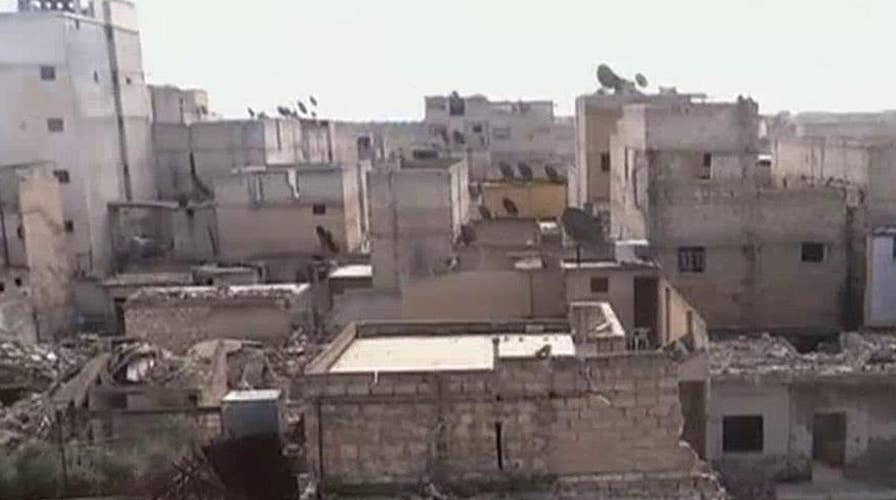Russia accuses US of bombing Aleppo, Syria
U.S. officials deny launching any airstrikes in the area
Dear Rabi,
You ask about Aleppo, let me tell you about the city where we grew up together.
We haven’t seen a good day in years. The shelling never stops, even for an hour or two. Life has changed, all the places you remember are gone: forget them, it is too painful. The bombs dropped by the regime are indiscriminate, destroying everything in their path. Everything is changed, destroyed or deserted, without life.
Even in our dreams we no longer know what “safety” means. Every time you open your eyes you don’t know if it the last time you will see your kids.
The people you used to know are not here anymore. People from the surrounding towns and villages have moved to the city in the past few years, hoping to find safety. Aleppo was always seen as a safe place.
But many of them had to move on. People keep trying to find safer places, so they keep coming and going. We are happy to help, but it is hard and we get tired.
Aleppo is not fully besieged yet. But moving around our city has become very difficult. People are living day by day; their hope has died along with their city and, many times, their loved ones.
The simplest things in life have become very hard. To buy food, bread or water for your family you have to wait in a long, long line--and then keep waiting.
You spend all the time looking around, paying attention to every noise, as if you could hear whether you are the next one that will be hit by a strike.
The remaining time, you think about your family: will they be still alive when you get home? Will your home still be there?
In the end you may get what you came for. If you are lucky you get home safely, without being killed by a bomb from a plane.
It is not just fighting on the front lines, it’s not just the continuous bombing. There are snipers hidden in every corner on the way out of the city.
We are constantly adapting our lives. Schools have had to move underground, and medical centers have to manage with limited supplies. We tried to build new democratic institutions: we elected new leaders. Everything has been a struggle.
We tried to go north to different neighborhoods, but bombs were falling there. We could see the planes flying above us, they sometimes display Syrian flags, sometimes Russian, sometimes we don’t even know. It feels like they are following us everywhere we go.
The surrounding communities of Anadan, Marah, Tal Refat, Hretan, Bynoon, Azaz are also suffering. These towns and villages started a peaceful revolution. They stood with Aleppo when Syrian government forces attacked civilians in the city. They took in people fleeing the bombs and the shelling.
But what happened to them? They were bombed, every single day. People do not know who the planes are aiming for and whether they will be next to die. Tens of air strikes per day, for the last 120 days.
And now it is time to leave. I didn’t ever expect this time would come, but I have to give up. I am leaving for a place I am not sure even exists.
Many friends of mine are already waiting along the Turkish border. It is an open, cold space, crowded with 70,000 people, where the temperature is freezing.
But my heart will always remain here.
Aleppo stands in front of a big war machine armed only with small weapons. It is not just a geographical target. Aleppo is karama, it is dignity, it is the revolution against injustice.
Goodbye Aleppo; my hometown, the place where I spent my childhood, where all my memories are.
I hope to see you there again one day, my friend.
Your childhood companion,
S.
Editor's note: This letter was sent to and translated by Rabi Bana, a human rights activist born in Aleppo in 1984, who left Syria in late 2012. He works in Beirut and Turkey for an international NGO that supports Syrian civil society. Born in Aleppo in 1980, S. has been involved in peaceful protest demanding freedom and democracy from the beginning of the uprising in 2011. He is a founder of the Aleppo Media Center and works in education for the city government.









































